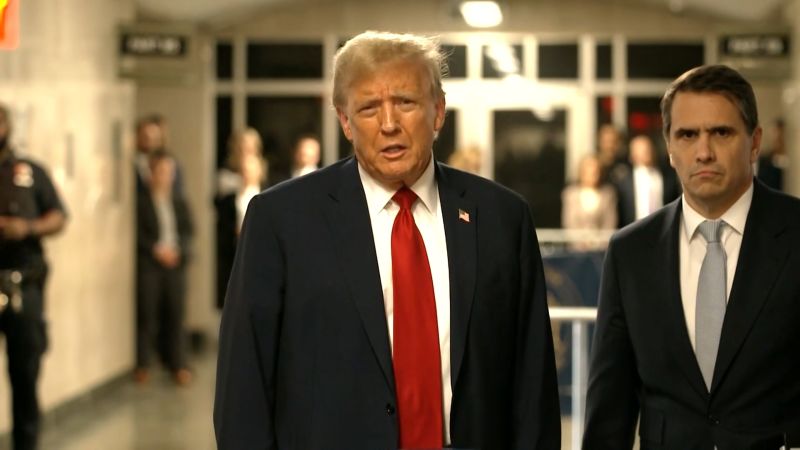Former White House attorney Jim Schultz recently spoke out about former President Donald Trump’s controversial remarks comparing campus protests about the Israel-Hamas war to the deadly Charlottesville neo-Nazi rally. Schultz expressed disappointment in Trump’s comment, calling it a “big mistake.” He emphasized that there was no similarity between the two events, as the Charlottesville rally led to violence and death, while campus protests were a peaceful demonstration of opinions about foreign policy.
Schultz’s reaction underscores the division within the Republican party regarding Trump’s controversial statements and actions. While some Republicans continue to support and defend Trump, others are speaking out against his polarizing rhetoric. Schultz’s criticism of Trump’s comparison highlights the discomfort felt by some party members over Trump’s willingness to make inflammatory remarks that can be misinterpreted or misconstrued.
The mention of Charlottesville in connection to the Israel-Hamas protests also reignites the debate over Trump’s response to the 2017 rally, where he infamously claimed that there were “very fine people on both sides” despite the presence of white supremacists. Trump’s handling of the Charlottesville incident was widely criticized, and his recent comments revive concerns about his attitude towards racist and extremist groups.
The backlash against Trump’s remark reflects a larger trend within the GOP, where voices of dissent are growing louder and more prominent. Republicans like Schultz are becoming increasingly vocal about their disagreements with Trump, signaling a potential shift in the party’s dynamics. As the Republican party grapples with internal divisions, Trump’s statements continue to provoke strong reactions and debate among party members and observers alike.
Schultz’s criticism of Trump’s mention of Charlottesville serves as a reminder of the importance of responsible and thoughtful rhetoric, especially from prominent political figures. By condemning Trump’s comparison and emphasizing the need for accuracy and sensitivity in public statements, Schultz highlights the power and impact of words in shaping public discourse and perceptions. His comments also underscore the significance of holding leaders accountable for their words and actions, particularly when they have the potential to incite division or harm.
Overall, Schultz’s reaction to Trump’s remarks about Charlottesville and the Israel-Hamas protests reflects a broader concern within the Republican party about the direction and messaging of its leaders. The divide between Trump loyalists and dissenting voices like Schultz underscores the ongoing struggle within the GOP to reconcile differing perspectives and ideologies. As the party navigates this internal tension, the public response to Trump’s comments serves as a barometer of where the Republican party stands on issues of race, extremism, and political rhetoric in the post-Trump era.


